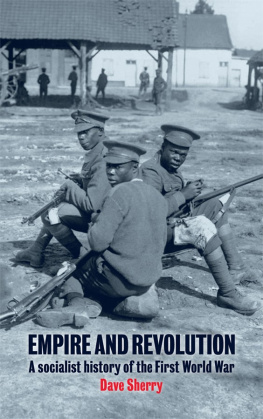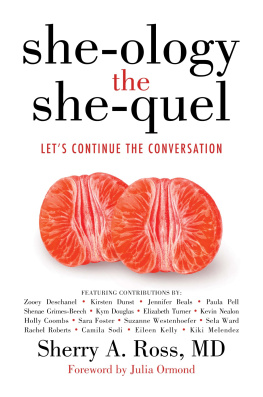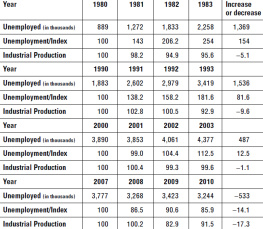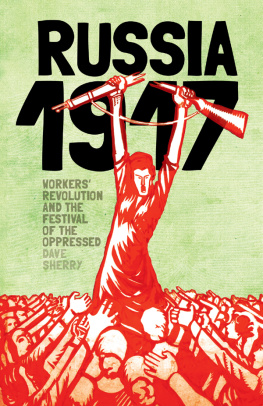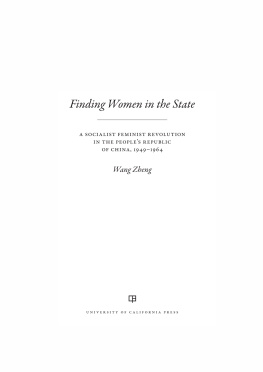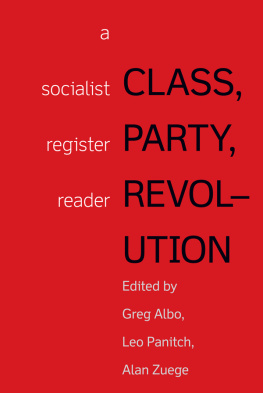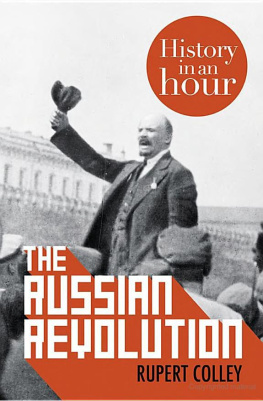Dave Sherry - Empire and Revolution: A Socialist History of the First World War
Here you can read online Dave Sherry - Empire and Revolution: A Socialist History of the First World War full text of the book (entire story) in english for free. Download pdf and epub, get meaning, cover and reviews about this ebook. year: 2014, publisher: Bookmarks Publications, genre: Politics. Description of the work, (preface) as well as reviews are available. Best literature library LitArk.com created for fans of good reading and offers a wide selection of genres:
Romance novel
Science fiction
Adventure
Detective
Science
History
Home and family
Prose
Art
Politics
Computer
Non-fiction
Religion
Business
Children
Humor
Choose a favorite category and find really read worthwhile books. Enjoy immersion in the world of imagination, feel the emotions of the characters or learn something new for yourself, make an fascinating discovery.
- Book:Empire and Revolution: A Socialist History of the First World War
- Author:
- Publisher:Bookmarks Publications
- Genre:
- Year:2014
- Rating:3 / 5
- Favourites:Add to favourites
- Your mark:
- 60
- 1
- 2
- 3
- 4
- 5
Empire and Revolution: A Socialist History of the First World War: summary, description and annotation
We offer to read an annotation, description, summary or preface (depends on what the author of the book "Empire and Revolution: A Socialist History of the First World War" wrote himself). If you haven't found the necessary information about the book — write in the comments, we will try to find it.
Dave Sherry: author's other books
Who wrote Empire and Revolution: A Socialist History of the First World War? Find out the surname, the name of the author of the book and a list of all author's works by series.
Empire and Revolution: A Socialist History of the First World War — read online for free the complete book (whole text) full work
Below is the text of the book, divided by pages. System saving the place of the last page read, allows you to conveniently read the book "Empire and Revolution: A Socialist History of the First World War" online for free, without having to search again every time where you left off. Put a bookmark, and you can go to the page where you finished reading at any time.
Font size:
Interval:
Bookmark:
EMPIRE AND REVOLUTION
A socialist history of the First World War
Dave Sherry
Dave Sherry lives in Glasgow and is a retired public sector housing worker and trade union activist. He is the author of Occupy! A Short History of Workers Occupations (Bookmarks 2010) and John Maclean: Red Clydesider (Bookmarks 2014). He is a member of the Socialist Workers Party.
A socialist history of the First World War
Dave Sherry

Empire and Revolution:
A socialist history of the First World War
Dave Sherry
Published 2014 by Bookmarks Publications
c/o 1 Bloomsbury Street, London WC1B 3QE
Bookmarks Publications
Designed and typeset by Peter Robinson
Printed by Melita Press
Cover picture: British West Indies
Regiment troops in France, 1916.
Imperial War Museum.
ISBN print edition: 978 1 909026 629
ISBN kindle: 978 1 909026 636
ISBN e-pub: 978 1 909026 643
ISBN PDF: 978 1 909026 650
The present is history
In Britain there is an attempt by government ministers, commentators and historians to reinvent the First World War as a time when the whole nation rallied against an external enemy and triumphed; a time when we were all in it together fighting for democracy and freedom. This is a travesty of history.
The First World War was the greatest barbarism the world had ever seen. It was a clash of empires in which each of the rival ruling classes was prepared for any number of dead to advance their imperial interests. It provoked mutinies, mass resistance and a wave of revolutionary struggle, which brought it to an abrupt end in November 1918, toppling monarchies and dissolving empires in the process.
Throughout 1919 Britain came closer to socialist revolution than at any time before or since. Its empire plunged into crisis as British military authority crumbled in the face of rebellion in Ireland, Egypt, Iraq, India, China and the West Indies.
In August 2014 the centenary of the outbreak of the First World War coincides with the hosting of the Commonwealth Games in Glasgow and the final countdown to the Scottish independence referendum in September. Prime Minister David Cameron has made it clear he will use all of these events to promote militarism and a reactionary British nationalismpartly to pander to anti-immigrant sentiment but also to keep Scotland in the union.
Glasgows merchantslike their counterparts in Britains other western seaports, Liverpool and Bristolmade vast fortunes from slavery and empire. Their ill-gotten gains laid the basis for Glasgows emergence as the Second City of Empire and a key munitions hub for the British state and its war profiteers; together they bear responsibility for the slaughter that began in 1914.
Against the present attempt to whitewash militarism and empire stands the tradition of working class resistance. The explosion of working class revolt during the First World War brought to prominence Britains two finest Marxists, James Connolly and John Maclean.
They led the opposition to the war because they understood it was about repartitioning the world between the great powers and that it would lead to further imperialist conflict. Like Lenin in Russia they anticipated the importance of national liberation struggles in the colonies and how they could weaken the British Empire and imperialism in general.
Connolly was executed by a British firing squad for his part in leading the Dublin Easter Rising in 1916. Maclean was imprisoned on five separate occasions by the British state; twice condemned to lengthy terms of penal servitude for sedition, twice he was released through mass protest. Maclean was only 44 when he died in 1923his death hastened by the hunger strikes, forced feeding and harsh treatment he endured in prison. Ten thousand Glaswegians lined the streets for his funeral.
The First World War should be viewed not as a historical curiosity or a matter for academic dispute, but as a powerful reminder of how war and empire are rooted in capitalist competition and a warning of what may lie ahead in the new imperialism of the 21st century.
A BBC TV debate on the Great War between two Tory historians, Niall Ferguson and Max Hastings, ignored this. Despite being given a generous primetime TV slot, neither of them connected the First World War with the world of today. Their was it a necessary or unnecessary war argument begged the question, necessary for whom? The 20 million human beings it killed and the millions wounded and maimed? That the First World War might have political consequences today seems to have escaped the BBC programme planners. This is astonishing, given that the war decisively shaped the 20th century and weighs heavily on the present. The 21st century began with geopolitical rivalries and tensions between the present-day superpowers, which have set proxy wars in motion reminiscent of those in the build-up to 1914.
The First World War followed a series of regional warsthe Boer War of 1899-1902, the Russo-Japanese War of 1904 and the Balkan Wars of 1912-13. Yet Karl Kautsky, the leading thinker in pre-war European social democracy, had argued that as capitalism developed it would become more benign, reducing the tendency to war.
That myth is still around today, expressed in the claim that globalisation and the end of the Cold War would bring a peace dividend. Yet we have witnessed the opposite. Every day on the TV news we see war or the threat of war, as the dominant powers jostle with each other for influence by supporting different sides in regional conflicts.
The 20th century ended with a re-run of the Balkan conflict that preceded 1914, with France, Germany and the US backing different sides in the break-up of former Yugoslavia. In 1999 Nato bombers pounded the towns and cities of Serbia, Montenegro and Kosovo, flouting the United Nations and exacerbating tension with China and Russia, who opposed the bombings.
The Project for the New American Centurythe invasions of Afghanistan and Iraq at the start of this century and the threat to attack Iranwas about American capitalism stamping its authority on the world. Despite Bushs shock and awe, the neo-cons failed in their aims and the US state has been looking for ways to reverse the setbacks it suffered when it occupied those countries and set fire to the Middle East.
That is why the US encouraged Israel to attack Lebanon in 2006, Ethiopia to attack Somalia in 2007 and Georgia to attack Russias borders in 2008an act which not only sharpened the tensions between Nato and Russia, but also widened the divisions among Nato member states.
Similar predatory manoeuvring has been taking place in Central Africa, where Chinese influence is growing; around the civil war in Syria; and across the wider Middle East. As I write, the same imperialist brinkmanship is being played out in the Ukraine and the Crimean Peninsula.
As with the Balkans, rival imperial powers have fought to control the Ukraine for centuries. Take Lviv, the main city in western Ukraine. In 1914 it was Lemberg, capital of the Austro-Hungarian province of Galicia. Between 1919 and 1939 it was Lwow, second city of Poland. It then became Lvov in the Soviet Republic of the Ukraine after the Second World War.
Since the collapse of the Soviet Union, Ukraines rulers have been trying to balance between Russia, Europe and the US. What began as a battle between two gangs of corrupt and thuggish oligarchsone aligned with Putins Russia, the other with the US and the EUhas now been overtaken by international rivalry with the big imperial powers seeking to extend their spheres of influence.
Next pageFont size:
Interval:
Bookmark:
Similar books «Empire and Revolution: A Socialist History of the First World War»
Look at similar books to Empire and Revolution: A Socialist History of the First World War. We have selected literature similar in name and meaning in the hope of providing readers with more options to find new, interesting, not yet read works.
Discussion, reviews of the book Empire and Revolution: A Socialist History of the First World War and just readers' own opinions. Leave your comments, write what you think about the work, its meaning or the main characters. Specify what exactly you liked and what you didn't like, and why you think so.

